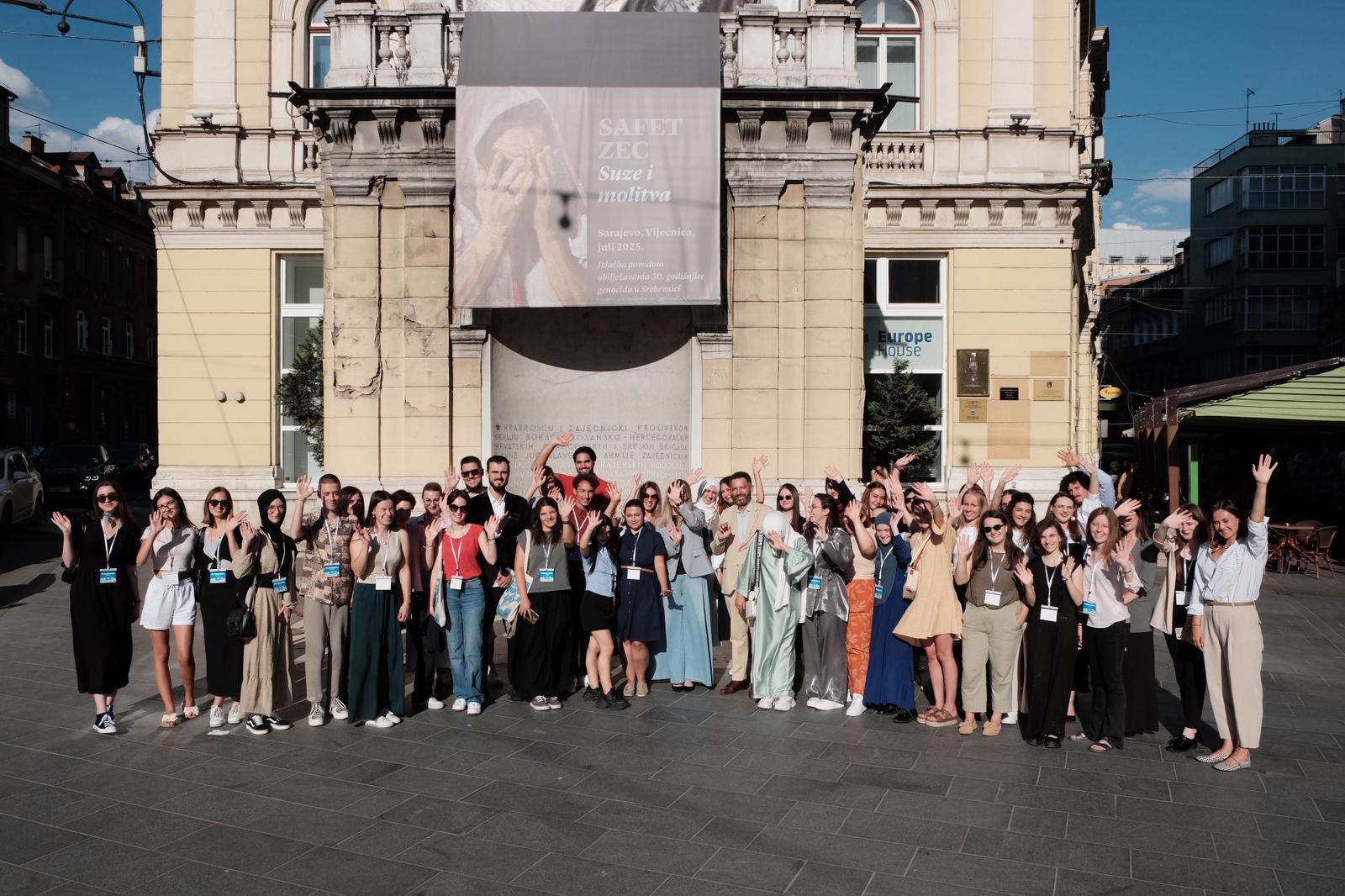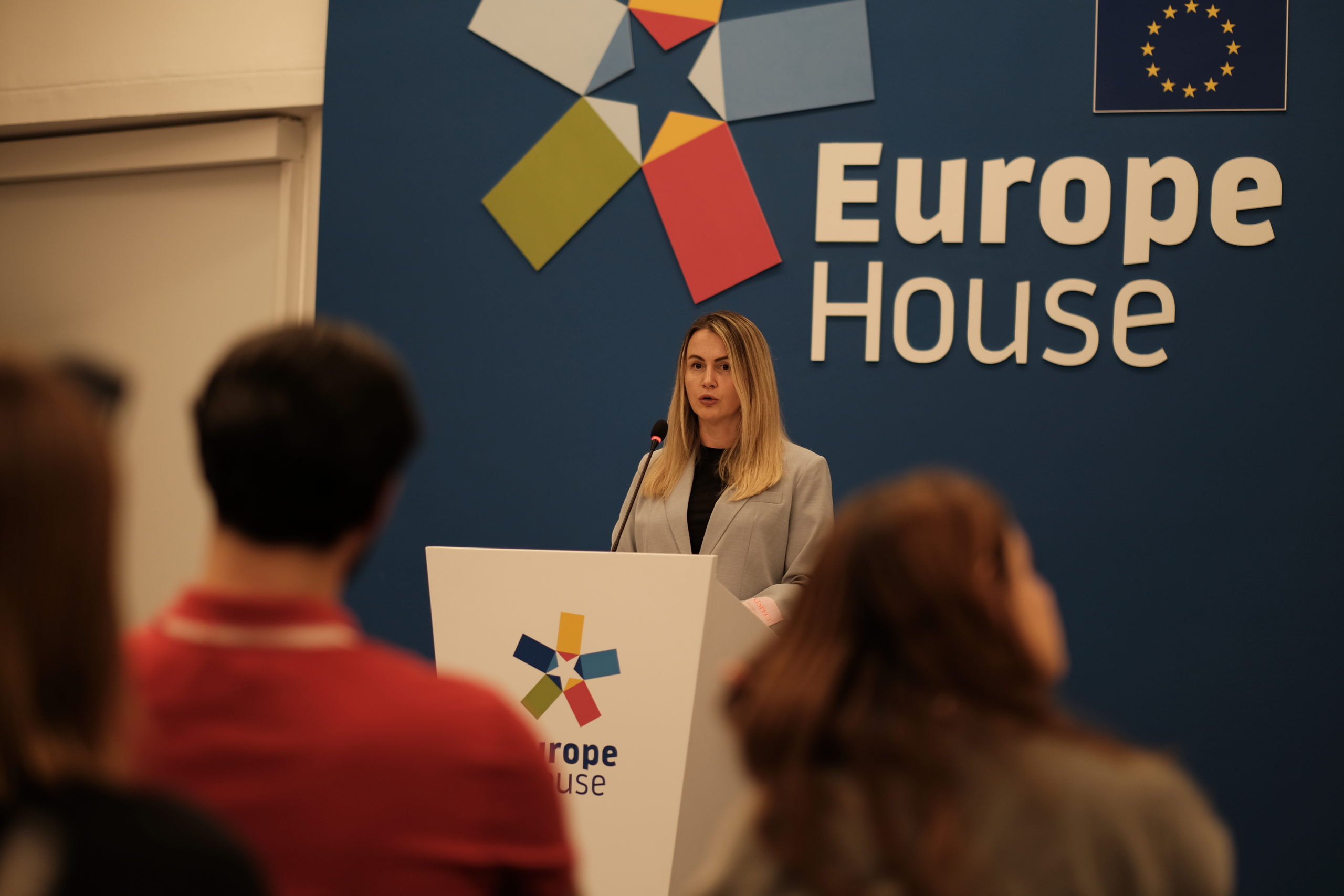
The third Youth Academy “State of Peace,” organized by the European Union in Bosnia and Herzegovina in cooperation with the Post-Conflict Research Center, was officially opened today in Europe House in Sarajevo.
This year’s program “State of Peace” brings together 50 young people from Bosnia and Herzegovina, Serbia, Montenegro, and Croatia, with the goal of learning about building sustainable peace and a democratic society through workshops, social activities, and study visits.
Through various youth-focused projects implemented across Bosnia and Herzegovina, the European Union aims to encourage young people to take a more active role in shaping society and to engage in reform processes on the country’s path toward EU membership. With a unique two-week program, the “State of Peace” academy offers participants the opportunity to connect and build new friendships with peers from neighboring countries while also developing understanding, empathy, and awareness of the importance of reconciliation for the region’s future.

Adebayo Babajide, Deputy Head of the Delegation of the European Union to Bosnia and Herzegovina, emphasized that the “State of Peace” program sends a strong message that young people are not only bearers of hope, but also of tangible change.
“Their participation sends a clear message – those who engage, learn and collaborate will be the ones creating positive change in societies. Through this program, they demonstrate that regional cooperation is not only possible, but necessary for sustainable peace and a European future. The European Union will continue to support such initiatives that empower youth and strengthen democratic values in Bosnia and Herzegovina and the region,” Babajide concluded.

This year, the academy will include visits to Sarajevo, East Sarajevo, Tuzla, Brčko, Ugljevik, Travnik, and Vitez. Participants will have the opportunity to engage with representatives of international and non-governmental organizations in Bosnia and Herzegovina, visit museums, memorial sites, and commemorative landmarks, and pay tribute to civilians who lost their lives in several locations. They will also speak with experts from Serbia, Bosnia and Herzegovina, and Croatia on the legacy of the wars of the 1990s and the process of dealing with the past.

Velma Šarić, founder and president of the Post-Conflict Research Center, highlighted that collaboration with the European Union on the “State of Peace” Youth Academy is a significant contribution to strengthening the role of young people in Bosnia and Herzegovina’s European integration process.
“Young people from Bosnia and Herzegovina, Serbia, Croatia, and Montenegro, through this academy, have the opportunity to exchange ideas, learn from one another, develop joint initiatives, and actively contribute to building a stable and prosperous region in the European spirit,” Šarić said.

This year’s program builds on the success of previous editions, held over the past two years, during which youth from the region visited various cities, explored cultural and religious heritage, and discussed key social issues through workshops and dialogue. Special emphasis is placed on mutual understanding, respect for diversity, and active participation in building democratic values.
The 2025 program also includes recreational activities—from time spent at the Pannonian Lakes in Tuzla to a visit to the Čardaci Ethno Village in Vitez, where participants will learn about examples of sustainable tourism and environmental responsibility in Bosnia and Herzegovina.






